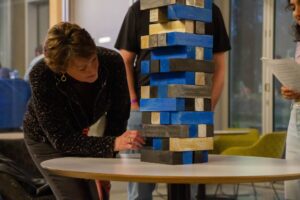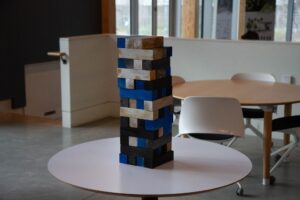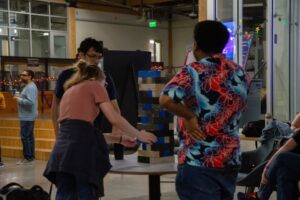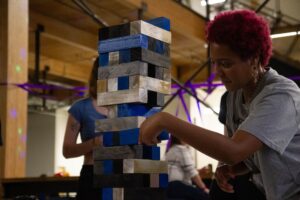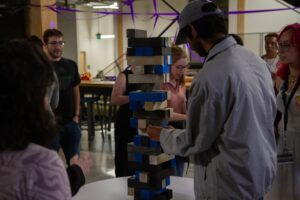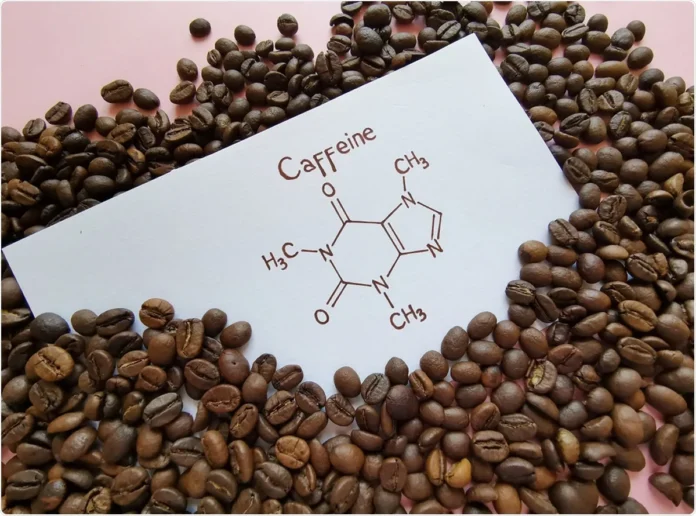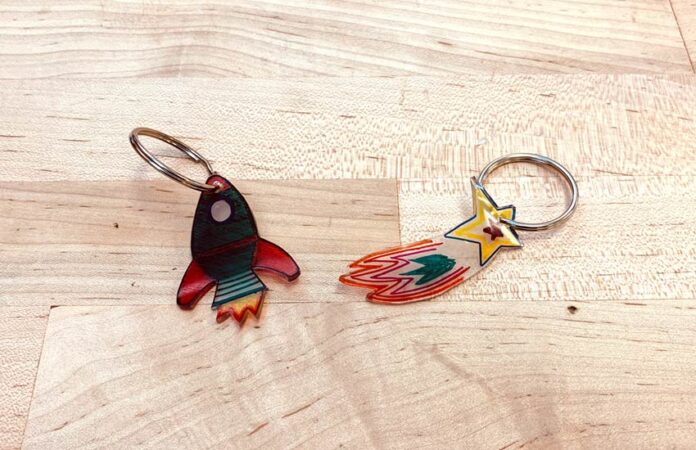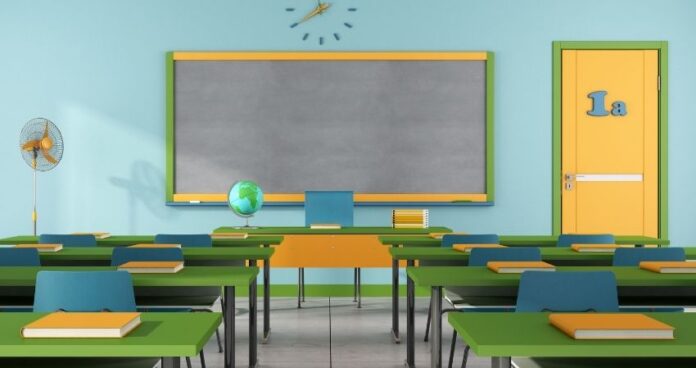Our team hosted a science-themed Jenga activity at the Atlanta Science Festival After-Party. The game served as an engaging activity to teach festival-goers about contemporary topics in astrobiology, astronomy, and other space-related science topics. Our team started by brainstorming different activities that could be used to engage people with scientific concepts. In the end, we decided that combining Jenga and Trivia would be an effective way to engage participants while retaining the space-theme of the Atlanta Science Festival. We drew on our class and research-related experiences to come up with fun trivia questions. One of my questions referenced phenolphthalein — the type of indicator used in my final titration for one of my lab classes — among other fun scientific tools and concepts.
First, a Jenga set was obtained from one of our members and the blocks were divided into three categories: “Dark Matter” (Chemistry and Astronomy), “Physics and Math”, and “Astrobiology”. Blocks corresponding to each category were painted a unique color (black, blue, and gold/silver respectively). Execution of the game itself involved first setting up the Jenga tower while ensuring that each layer contained a mix of blocks from multiple categories. Once setup was complete, players then took turns selecting a category of question to answer. If their answer was correct, it would be the next player’s turn. If their answer was incorrect, they would have to pull out a block of the color corresponding to their chosen trivia category. In typical Jenga fashion, the first player to knock over the tower was considered to have lost the game.
In this way, the unique mechanics of Jenga were utilized in a manner complimentary to the trivia format. If a player didn’t answer a question correctly, their penalty was to remove a block from the Jenga tower which matched the color of the category they had selected. This increased engagement with the game by adding another avenue of strategy for players; they would need to select what category of question to answer based not only on their personal knowledge base, but also based on which color block would be easiest to remove if they got the question wrong. This mechanic encouraged players to ‘switch up’ which category of questions they selected as they were incentivized to pick colors whose removal wouldn’t impact the structural integrity of the Jenga tower.
We also had to be mindful of the difficulty of the Trivia Questions we chose to ask participants. It took several rounds of revisions to get to our final question bank. In the end, it was key to make sure the difficulty of questions was appropriately balanced to our target audience. After all, our party attendees could be expected to have an above-average exposure to science, however questions would need to be easy enough that they could reasonably be answered by someone outside of that scientific specialty. I think we hit the right balance in the end, as partygoers were challenged by most questions, but were able to get enough right that they felt motivated to continue playing.
Overall, our activity seemed extremely effective when it came to engaging participants with scientific concepts. Afterwards, one participant made a comment that they felt “like [they] learned a lot” by participating in the game. Some expansions/improvements to consider making in future could include a larger question bank to help avoid repeats, or an automated system that would select questions for participants so that the game-master doesn’t have to keep track of which questions have already been asked. I look forward to expanding upon this activity in future science-outreach related events.
